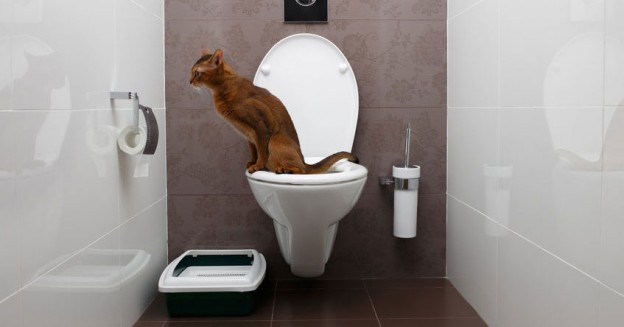Are you currently in search of critical info around How to Dispose of Cat Poop and Litter Without Plastic Bags?

Introduction
As feline proprietors, it's essential to bear in mind how we get rid of our feline pals' waste. While it may appear practical to purge cat poop down the bathroom, this practice can have detrimental consequences for both the atmosphere and human health and wellness.
Environmental Impact
Flushing pet cat poop presents dangerous virus and parasites into the supply of water, posturing a considerable threat to water ecosystems. These pollutants can negatively impact marine life and concession water top quality.
Health and wellness Risks
In addition to ecological problems, purging cat waste can additionally present health threats to people. Pet cat feces may consist of Toxoplasma gondii, a bloodsucker that can trigger toxoplasmosis-- a potentially serious illness, specifically for expectant ladies and people with weakened body immune systems.
Alternatives to Flushing
Luckily, there are safer and more liable methods to dispose of cat poop. Take into consideration the adhering to options:
1. Scoop and Dispose in Trash
One of the most common approach of throwing away pet cat poop is to scoop it into a naturally degradable bag and toss it in the garbage. Be sure to use a devoted clutter scoop and throw away the waste without delay.
2. Usage Biodegradable Litter
Choose biodegradable feline litter made from materials such as corn or wheat. These litters are environmentally friendly and can be securely thrown away in the trash.
3. Hide in the Yard
If you have a lawn, take into consideration hiding feline waste in an assigned location far from vegetable yards and water sources. Make sure to dig deep enough to prevent contamination of groundwater.
4. Set Up a Pet Waste Disposal System
Buy a pet waste disposal system especially designed for feline waste. These systems use enzymes to break down the waste, decreasing smell and ecological influence.
Final thought
Liable pet dog ownership prolongs past providing food and shelter-- it also involves proper waste management. By avoiding flushing feline poop down the toilet and going with alternative disposal techniques, we can lessen our environmental footprint and protect human health.
Why You Should Never Flush Cat Poop Down the Toilet
A rose by any other name might smell as sweet, but not all poop is created equal. Toilets, and our sewage systems, are designed for human excrement, not animal waste. It might seem like it couldn’t hurt to toss cat feces into the loo, but it’s not a good idea to flush cat poop in the toilet.
First and foremost, assuming your cat uses a litter box, any waste is going to have litter on it. And even the smallest amount of litter can wreak havoc on plumbing.
Over time, small amounts build up, filling up your septic system. Most litter sold today is clumping; it is made from a type of clay that hardens when it gets wet. Ever tried to scrape old clumps from the bottom of a litter box? You know just how cement-hard it can get!
Now imagine just a small clump of that stuck in your pipes. A simple de-clogger like Drano isn’t going to cut it. And that means it’s going to cost you big time to fix it.
Parasitic Contamination
Believe it or not, your healthy kitty may be harboring a nasty parasite. Only cats excrete Toxoplasma in their feces. Yet it rarely causes serious health issues in the cats that are infected. Most people will be fine too if infected. Only pregnant women and people with compromised immune systems are at risk. (If you’ve ever heard how women who are expecting are excused from litter cleaning duty, Toxoplasma is why.)
But other animals may have a problem if infected with the parasite. And human water treatment systems aren’t designed to handle it. As a result, the systems don’t remove the parasite before discharging wastewater into local waterways. Fish, shellfish, and other marine life — otters in particular — are susceptible to toxoplasma. If exposed, most will end up with brain damage and many will die.
Depending on the species of fish, they may end up on someone’s fish hook and, ultimately on someone’s dinner plate. If that someone has a chronic illness, they’re at risk.
Skip the Toilet Training
We know there are folks out there who like to toilet train their cats. And we give them props, it takes a lot of work. But thanks to the toxoplasma, it’s not a good idea.

I recently found that blog post on How to Dispose of Cat Poop and Litter Without Plastic Bags when doing a lookup on the search engines. Those who enjoyed our article if you please do not forget to pass it around. Bless you for your time. Kindly stop by our website back soon.
This Post